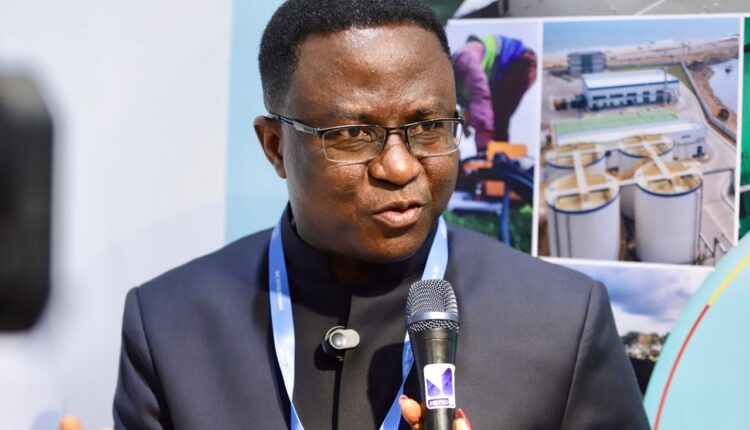COP29
At a 29th Conference of Parties (COP29) of the United Nations Framework Convention on Climate (UNFCCC) side event panel discussion on November 14, 2024, Mr. Gyimah, the chief investment officer of the Jospong Group in Ghana highlighted capacity building’s crucial role in carbon financing for developmental projects, during the session “New World of Carbon Markets: The Potential of Existing Infrastructure and Impact of Investments in the Green Economy.”
READ ALSO : COP29-Jospong Group Outlines Its Resilient Climate Efforts

The COP29 opened in Baku, Azerbaijan, on Monday, November 11, 2024, with a pressing call for world leaders to agree on an ambitious new global climate finance goal.
The two-week COP29 conference from 11 November through to 22 November 2024, will focus on several key thematic areas, including the World Leaders Climate Action Summit, finance, investment and trade, energy and peace, relief and recovery, science, technology and innovation.
READ ALSO :All Americans Need A Bible” – Donald Trump, Video
Capacity Building
At the side event, the chief of investment at Jospong stressed the importance of developing capacities in both the private and public sectors which inevitably become essential for understanding which projects attract carbon financing. As an investment professional, he further stated that if developing capacities is not done, the sessions would be mere talk about climate change without much action in the sense of commercialization to attract capital.
READ ALSO : Adabrakah Daylight Robbery
Mr. Gyimah used the opportunity to share Jospong Group’s success story of securing $20 million from the Swiss Government through the support of the Ghanaian Government.

In espousing further how the 20 million dollars was secured from the Swiss Government, the Jospong chief said “This was made possible through a combination of technical expertise from science together with sustainable finance experts to do the calculations from carbon emission sums and then to convert it into a financial model to say that if I can remediate this number of CO2, it corresponds to this sum of dollars”.
READ ALSO : U.K Tightens Visa Requirements
He also highlighted the importance of capacity building in project finance, data collection, and technology integration. “These capacities are yet to be built, so for Ghana to reach that apex to attract capital, we must build the capacities of people to understand project finance, actual documentation, and the data houses that we need to build to have data sources to prove this work we are doing is very important”.
Technology In Waste Management
On how technology impacts the waste management business, Mr. Gyimah mentioned tools such as AI which can simulate data and optimize waste management.: “All of these are data-driven; if you mention that you are going to remediate 1.5 metric tons of CO2 and this number of tons of waste, I need to have data to prove it.”
READ ALSO : U.S. Visa Restrictions For Ghanaians Who Cause Disturbance In Elections

Waste Segregation
Regarding waste segregation, the Jospong chief investment officer said, “Waste segregation starts at the source, and there is a need for separate bins.” Hence, he suggested policy initiatives, such as subsidised bins or buyback programs, to encourage proper segregation. In stating how his organization has taken the lead in proper waste management process, he continued further…”Jospong’s innovative approaches included waste segregation, recycling, organic fertilizer production, and transfer loading stations. Those investments that we made closer to the people helped us to aggregate the waste and with that, we can have a first line of treatment which helps in the type of waste that goes to the recovery plant for recycling.”
READ ALSO : W.H.O. Activates Emergency Response to Mpox
Conclusion
In his closing remarks, Mr Gyimah urged all stakeholders by reemphasizing his points: “Individuals, governments, and private sectors must work together to reduce carbon emissions. By building capacities and leveraging technology, we can unlock capital and create a sustainable future.”



